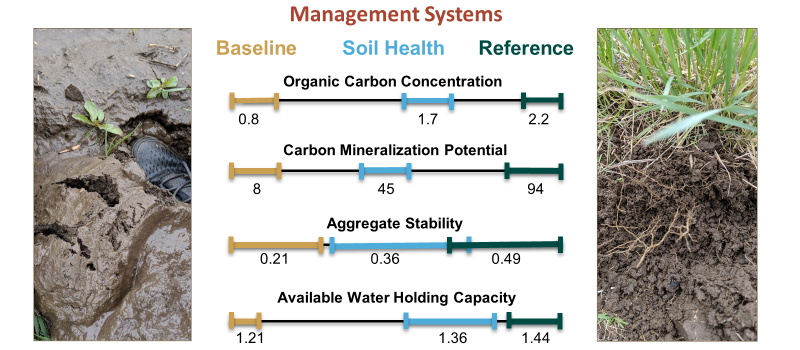MORRISVILLE, N.C., Feb. 9, 2023 /PRNewswire/ — The Soil Health Institute (SHI), a global non-profit with a mission to safeguard and enhance the vitality and productivity of soils, announced a $300,000 grant today from Wells Fargo to establish achievable levels of soil health and soil carbon (“Soil Health Targets”) for the Des Moines Lobe Region in Iowa. The agriculturally important region spans 7.75 million acres, including approximately 3.4 million acres in corn and 2.6 million acres in soybean production.

“Supporting soil health is critically important for our customers and communities as we continue to work toward a resilient, equitable, and sustainable future,” said Robyn Luhning, Chief Sustainability Officer at Wells Fargo. “Wells Fargo is pleased to support the Soil Health Institute’s work to deliver locally-relevant, actionable, and practical soil health information for growers and landowners in Iowa.”
“Soil health benefits growers, the environment, and society in many ways,” said Dr. Minerva Dorantes, Project Soil Scientist at SHI. “These include improved nutrient use efficiency, drought resilience, downstream water quality, greenhouse gas mitigation, carbon sequestration, and ultimately, profitability. At SHI, we are advancing the science and application of soil health. Determining achievable levels of soil organic carbon concentration, carbon mineralization potential, aggregate stability, and available water holding capacity for different soil types is foundational to our efforts and those of growers and landowners who manage this precious resource.”
“Because soils vary across a landscape in terms of their functional capacity to cycle water, nutrients, and carbon, SHI is grouping soils across the United States based on their inherent soil properties. Then, within those groups, SHI is sampling baseline production systems, soil health systems, and perennial reference systems to determine the effect of management on soil health status. By comparing their current soil health status to reference values, growers and their advisors can set achievable Soil Health Targets,” said Dr. Dorantes. “Our goal is to provide a standardized, science-based framework to measure and monitor soil health: the foundation of regenerative agriculture.”
About the Soil Health Institute
The Soil Health Institute is a global 501(c)(3) non-profit with a mission to safeguard and enhance the vitality and productivity of soil through scientific research and advancement. We bring together leaders in soil health science and the industry to help farmers, ranchers, and landowners adopt soil health systems that build drought resilience, stabilize yield, and benefit their bottom line. The Institute’s team of scientists, holding doctorates in various soil science and related disciplines, has developed highly effective soil health targets and standardized measurements to quantify progress at achieving regenerative and sustainable agricultural systems, and leads the cutting-edge fields of carbon sequestration and decoding the soil microbiome. Healthy soils are the foundation for rejuvenating our land. Together, we can create a secure future for all, mitigate the effects of climate change, and help agriculture and organizations meet production and environmental goals at scale.
Visit www.soilhealthinstitute.org to learn more and follow us on LinkedIn, YouTube, and Facebook.